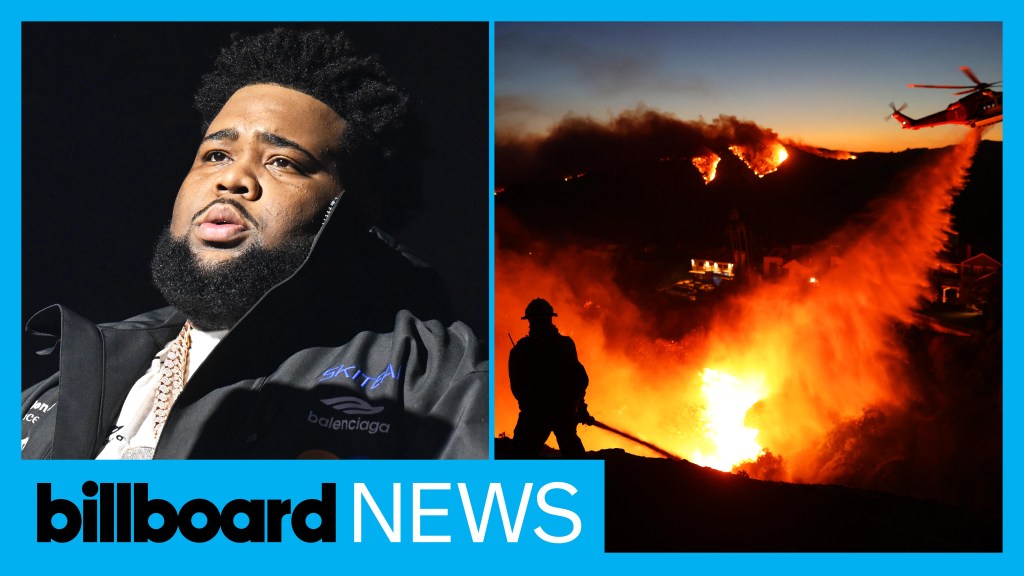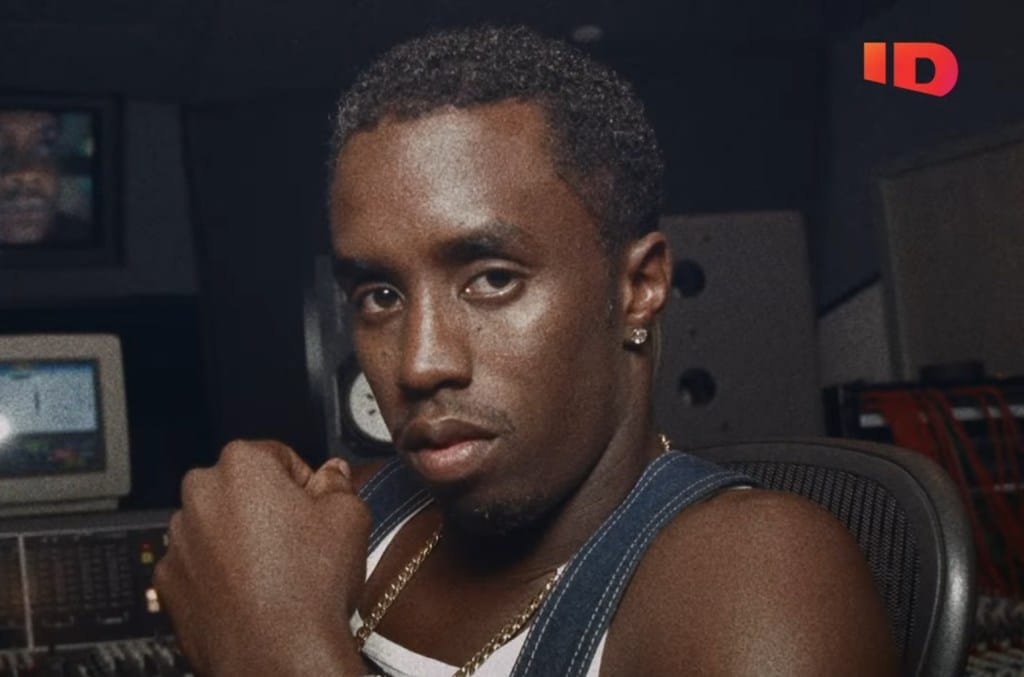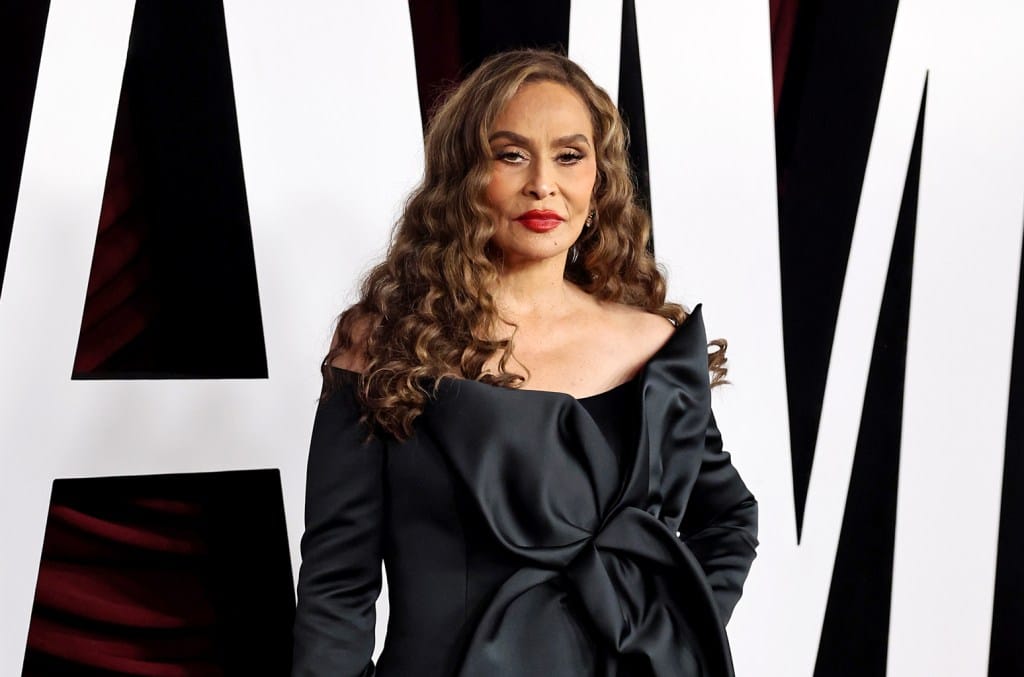nsfs
Page: 37
Since Tuesday (Jan. 7), ferocious wildfires have been blazing through the greater Los Angeles region, causing extensive damage to life and property, including those of many individuals working in the music business. With nearly 180,000 residents impacted by evacuation orders, at least five dead and thousands of structures damaged or destroyed, music industry organizations are finding ways to provide relief for impacted music workers.
Below, find a list of some of the music organizations offering relief for L.A. industry owrkers. We will continue to update this list as more announcements are made.
(For health alerts, evacuation updates and shelter information, check out L.A. County’s emergency website here.)
MusiCares
The Recording Academy’s philanthropic arm MusiCares say it “can consider emergency funds related to evacuation and relocation costs, instrument replacement/repair, home damage, medical care, mental health services, & other essential living needs,” according to a statement released to social media. Further details have yet to be announced.
Reach out to: musicaresrelief@musicares.org or call 1-800-687-4227
Backline
Mental health non-profit Backline is sharing resources for musicians in Los Angeles via social media and offering its own services. “Know that Backline is here for you and that you are not alone,” the organization wrote on Instagram. “You can reach out to us via our case submission form and a Case Manager will contact you to help you get the long-term support you need. If you need immediate assistance, please reach out to the Disaster Distress Hotline for free 24/7 support by calling 1-800-985-5990.”
Sweet Relief Musicians Fund
Sweet Relief Musicians Fund, the non-profit helping musicians and music industry workers in need, has launched a natural disaster relief fund for those in Los Angeles County and the surrounding areas. Applications are also open for those seeking relief, with funds raised going toward loss of music-related equipment, medical bills related to the fires and other vital living expenses.
Head here to donate or fill out an application.
Tina Knowles has lost her home amid the ongoing wildfire crisis in Los Angeles, the businesswoman revealed Thursday (Jan. 9) on Instagram.
Sharing a video of what appears to be dolphins swimming in the ocean just outside of her beachside bungalow in Malibu, Knowles — who is Mom to Beyoncé and Solange Knowles — wrote, “This is what I was looking at on my birthday this past weekend.”
“It was my favorite place, my sanctuary, my sacred Happy Place,” she continued. “Now it is gone !! God Bless all the brave men and women in our fire department who risked their lives in dangerous conditions. We thank you for your dedication and bravery and for saving so many lives.”
Adding that her “deepest prayers” are with Californians who have been affected by the fires — particularly the family members of the five victims who have been reported dead since the disaster broke out two days prior — the designer concluded, “I am praying diligently for our beautiful City of Los Angeles !! We are resilient though and we will recover!”
Knowles is just the latest public figure who’s reported losing their property to the fires, which first erupted in Pacific Palisades on Tuesday morning. More blazes have since torn through the Hollywood Hills, Pasadena, Altadena and Sylmar, claiming more than 28,000 acres so far and necessitating that nearly 180,000 residents be placed under evacuation orders or warnings, according to CNN.
Mandy Moore, Brad Paisley, Jhené Aiko and songwriter Diane Warren have also shared that the fires have destroyed their homes, while Kid Cudi, Travis Barker’s son Landon and daughter Alabama, and more celebrities have posted about evacuating. Stars such as Ariana Grande, Billie Eilish and Shawn Mendes have been doing their part by boosting resources on social media, while countless industry events have been forced to cancel or postpone due to the destruction to the city.
Knowles’ post comes just five days after she celebrated her 71st birthday on Jan. 4. On her big day, the mogul shared a reel of photos with her daughters and wrote on Instagram, “I am so thankful To God today for so many things ! My family ! My friends , my health and my life!!!!”
See Knowles’ post below.

Mandy Moore is one of the thousands of people affected by the devastating fires that continue to rage across Los Angeles, and the star took to Instagram to share videos and photos of the damage she and her community endured.
Explore
Explore
See latest videos, charts and news
See latest videos, charts and news
“I love you, Altadena. Grateful for my family and pets getting out last night before it was too late (and endless gratitude to friends for taking us in and bringing us clothes and blankets),” she wrote on Wednesday (Jan. 8) alongside videos of her neighborhood, engulfed in smoke and flames. “Honestly, I’m in shock and feeling numb for all so many have lost, including my family. My children’s school is gone. Our favorite restaurants, leveled. So many friends and loved ones have lost everything too. Our community is broken but we will be here to rebuild together. Sending love to all affected and on the front lines trying to get this under control.”
She followed-up with another series of photos the next, this time from her property, much of which was left as rubble. “We were able to park and walk up our street to bear witness to all the loss. Miraculously, the main part of our house is still standing,” she wrote. “For now. It’s not livable but mostly intact.”
Moore continued, “Everyone we know lost everything. Every house on our street is gone. My in laws. My brother and sister in law- 6 weeks from welcoming their first baby. Our best friends. Feeling weird survivors guilt. We love this community and will do everything we can to help rebuild and support. Thanks for everyone for checking on us and offering us help. Altadena strong.”
See her post here.
She joins a number of celebrities who also lost their homes or sustained significant damage, including Jhené Aiko, Paris Hilton, Anna Faris, Spencer and Heidi Pratt, Leighton Meester and Adam Brody and Diane Warren, among others.
A series of wildfires broke out across Los Angeles this week, fanned by gust-like winds, leading to more than 200,000 evacuations. The Palisades Fire on the west side of the city has consumed more than 17,000 acres, while the Eaton Fire on the east burned more than 10,000 acres. Crews also fought the Sunset Fire on Wednesday night (Jan. 8) in the Runyon Canyon area of the Hollywood Hills, and the blaze led to the burning of dozens of acres of vegetation.

The Los Angeles wildfires have wreaked havoc throughout the county, and we have updates on how the music industry has been affected. Keep watching for more details. Tetris Kelly:Iconic studios fall and concerts are canceled as wildfires wreak havoc in L.A. Los Angeles is currently rushing to contain an outbreak of massive wildfires across the […]
Jhené Aiko is one of the thousands of people who lost their homes amid the devastating fires blazing across Los Angeles this week. The “Bed Peace” singer took to social media on Thursday (Jan. 9) to reveal that her home was “burned to the ground with all of our things inside,” but her two-year-old son […]
Wildfires have devastated thousands in the Los Angeles area this week. Kid Cudi revealed on Wednesday night (Jan. 8) that he and his family evacuated his L.A. home safely.
“Hey guys, had to evacuate my crib,” he began in a heartfelt Instagram Story. “Im safe, w my loved ones, dogs are safe. For all the folk who lost their homes, people that are dealing with this, my heart hurts for you and Im for praying us all and I send ALL my love to you and yours. if you have to evacuate, get out immediately. Dont hesitate. Be safe LA. Love you guys.”
Cudi’s update on his safety was his first post to social media this year since announcing he was taking a hiatus from the various platforms in December.
“I’ll keep y’all updated [through] my Stories, but I won’t be posting much on there either,” he wrote to X in December. “Just projects and things [that] I [have] goin’ on will be posted by my team… I see too much bulls–t on here… I think I’ve been too accessible. Now, when [you] hear from me, it’ll be through my art.”
The L.A. area wildfires have become the most destructive in the history of the city, per the Associated Press. The blazes have forced nearly 180,000 people to evacuate, according to CBS News, with CNN reporting that another 200,000 are under warnings to evacuate. Meanwhile, the east-side Eaton Fire has caused five deaths so far and burned more than 10,600 acres near Pasadena.
Many celebrities have attempted to spread awareness about the devastation and posted links to resources to help L.A. residents, including Ariana Grande, Billie Eilish, Shawn Mendes and Paris Hilton.
Hilton was among those who lost their homes to the blaze. “Heartbroken beyond words,” she wrote to IG. “Sitting with my family, watching the news, and seeing our home in Malibu burn to the ground on live TV is something no one should ever have to experience.”
For health alerts, evacuation updates and shelter information, check out Los Angeles County’s emergency website.

Devastating wildfires have ravaged thousands of acres in and around Los Angeles over the past few days, burning homes and businesses and devastating communities including Pacific Palisades, Pasadena and Altadena. The wildfires also claimed a home in Pacific Palisades that at one time belonged to country singer Brad Paisley and his wife, actress Kimberly Williams-Paisley. […]
The U.K. inquest into the cause of death for Liam Payne has concluded that the former One Direction singer and solo star died of “polytrauma” after his fall from a third-story hotel balcony in Argentina on Oct. 16. According to BBC News, the Buckinghamshire Coroner’s Court was told at the hearing held on Dec. 17 that it could take “some time” to establish the cause of death for the 31-year-old star.
Explore
Explore
See latest videos, charts and news
See latest videos, charts and news
Polytrauma refers to multiple traumatic injuries to a person’s body and organs. The U.K. inquest’s findings mirror those of Argentinian officials, who said in November that Payne’s death was caused by “multiple trauma” and “internal and external hemorrhage,” as a result of the fall.
The U.K. inquest also heard that after being flown back to England for his funeral, Payne’s body was identified with the “assistance of the funeral director in Buckinghamshire.” During the hearing, the BBC reported that Senior Coroner Crispin Butler, said, “Whilst there are ongoing investigations in Argentina into the circumstances of Liam’s death, over which I have no legal jurisdiction, it is anticipated that procuring the relevant information to address particularly how Liam came by his death may take some time through the formal channel of the Foreign, Commonwealth and Development Office.”
To date, five people have been charged in Payne’s death, including the arrest last week of Braian Piaz, one of two men accused of supplying drugs to the singer. The others charged to date include CasaSur Palermo Hotel manager Gilda Martin, receptionist Esteban Grassi and Payne’s friend Roger Nores, all of whom are facing manslaughter charges; hotel employee Ezequiel Pereyra has also been charged with supplying drugs to the singer.
The final autopsy report from Argentinian’s authorities attributed Payne’s death to multiple traumas and hemorrhages he suffered from the fall, with a toxicology report noting the presence of alcohol, cocaine and prescription antidepressants in his system at the time of death. Before the fall, the head receptionist at the hotel made two emergency calls requesting medical services — the first of which reported that a guest was “trashing the entire room,” with the second expressing a concern that the guest “may be in danger.”
Payne was laid to rest in November in his native U.K. at a funeral attended by his former 1D bandmates, his girlfriend Katie Cassidy and ex-partner Cheryl Cole, with whom he shared a son, Bear.
iHeartRadio has canceled 2025’s ALTer EGO show — which Cage the Elephant, Glass Animals and more had been set to headline — amid the devastating wildfires in Los Angeles. In an announcement posted on Instagram Thursday (Jan. 9), organizers wrote, “It is with heavy hearts that we report that we will be canceling our ALTer […]

The first trailer for Investigation Discovery’s upcoming four-part docuseries, The Fall of Diddy, dropped on Thursday morning (Jan. 9), with a preview of its effort to unpack disgraced mogul Sean “Diddy” Combs‘ rise to global stardom and precipitous plunge amid dozens of allegations of sexual abuse, rape and assault.
“Spanning Combs’ decades-long impact on music and popular culture, from his early days as a talented creative to his 2024 arrest, the docuseries uncovers the insidious and terrifying allegations of sexual assault, abusive behavior, violence, and other disturbing claims that lay beneath his success,” reads a release about the series from Maxine Productions (Quiet on the Set: The Dark Side of Kids TV) with original reporting from Rolling Stone Films.
The series will air on Jan. 27 and Jan. 28 (from 9 to 11 p.m. ET on Investigation Discovery, later streaming on Max), promising to tell the story of Combs’ life from the perspective of those who, “saw his alleged violence and temper during his college days at Howard University and the onset of his career with Bad Boy Records, to those who knew him at the height of his influence and power in recent years.”
The 90-second trailer features a series of interviews from a number of music industry peers and artists attesting to the dark side of the Bad Boy Records founder, with many of the subjects revealing their previous long-held fears of speaking out about the once-powerful music impresario. “I’ve been quiet for 18 years,” says an unseen woman in voiceover at the top of the trailer. “I am absolutely nervous sharing what I’ve seen,” she adds, as a man says, “I can no long just remain silent.” Former VIBE editor-in-Chief Danyel Smith — speaking for the first time on camera about Diddy’s alleged violent behavior toward her — adds, “This is where I’m supposed to be.”
The first glimpse intercuts scenes from Diddy’s glory years in the 1990s with somber shots of the many Combs insiders and industry figures interviewed in the series, which will include former Danity Kane singer D. Woods, as well as Rodney “Lil Rod” Jones, who has accused Diddy of sexual harassment. In addition, the doc will include comments from journalist Cheyenne Roundtree, former bodyguard Roger Bonds, former personal chef Jourdan Cha-Taun and former driver Wardel Fenderson (who speaks for the first time and testified about Combs’ attempt to bribe him), in addition to Thalia Graves, a woman who has alleged that Combs violently raped her in 2001 and threatened her into silence.
“Through these interviews combined with a vast collection of archival footage, The Fall of Diddy paints a holistic picture of a mogul who is alleged to have wielded his extensive power and influence to obscure, for decades, a pattern of abuse and violence that left an unprecedented amount of pain and suffering in his wake,” reads the statement.
In a particularly harrowing soundbite, Jones recalls Diddy allegedly saying, “I’m Puff Daddy, I’ll eat your face off!”
The trailer includes the now-infamous 2016 footage of Diddy running down a hotel hallway in just a towel in pursuit of longtime ex-girlfriend singer Cassie before he appears to assault her in an incident caught on surveillance footage. Cassie sued Combs in November 2023 over allegations that he repeatedly physically abused her over a decade during their relationship, including claims he raped her and forced her to “engage in sex acts with male sex workers” as he masturbated; the lawsuit was settled a day after it was filed, with the terms kept secret.
Last July, in an emotional New York Times personal essay, Smith opened up for the first time about Diddy’s alleged harassment and intimidation of her in the late 1990s. It included a scene from a 2015 party — six months before the assault in the hotel video — where Cassie shakily asked her “How are you doing it?” Smith, who said she’d also been a victim of sexual assault, said she replied, “doing what?,” to which Cassie added, “like, how are you managing?”
“We each wanted to say something. It seemed that neither of us could find the words,” Smith wrote.
Combs, 55, is currently in federal custody after being denied bail three times as he awaits trial on counts of sex trafficking and racketeering in a federal case that is slated to begin on May 5; he has pleaded not guilty to the charges that could land him a life sentence if he’s convicted. He is also facing more than two dozen lawsuits from people accusing him of drugging, raping, assaulting and intimidating victims, with attorneys for some of the victims saying they are representing at least 120 other alleged victims; Combs had denied all the allegations.
“We did not realize the extent of the darkness,” says one of the interview subjects in the trailer. Another Diddy doc, the 90-minute Diddy: The Making of a Bad Boy, will debut on Peacock on Jan. 14.
Watch The Fall of Diddy trailer below.

 State Champ Radio
State Champ Radio 




